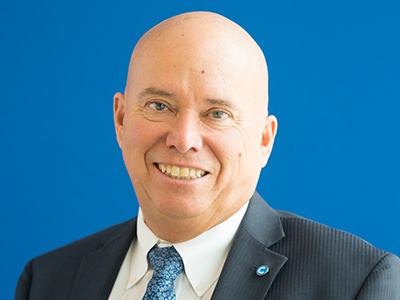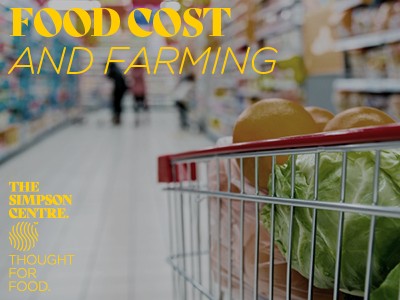Our People Feature: Brian Bietz, Executive Fellow

Probably very few people can enthuse about chronic wasting disease like Brian Bietz does. A biologist by training with a strong background in regulatory processes, Bietz is an executive fellow at the University of Calgary’s School of Public Policy, where he focuses on environmental issues pertaining to Alberta’s oil and gas industry. What has that to do with chronic wasting disease (CWD)? A lot, surprisingly, as both issues essentially boil down to regulation.
“Good environmental science is just one element of good planning. I can help the school in that way,” Bietz says. Currently, he is advising the School “on an analysis of partial upgrading and whether there’s a proper regulatory process in place should it become part of the economic landscape in Alberta.”
And yes, chronic wasting disease is somewhat outside the School’s purview, but “I’m fascinated with it,” Bietz says. Identical to bovine spongiform encephalitis (BSE or mad cow disease) in many ways, CWD affects deer and elk.
“The difficulty we have is in translating these types of low-risk, but high-impact things – these contagious diseases. It’s so hard to get those translated into coherent government policy,” Bietz says.
He adds that he has spent his whole career “coming to grips with things they didn’t take seriously before the data came in. We realized we do need to deal with these things.”
Bietz has also been involved with the processes to reduce sulfur emissions in the sour gas industry and their impacts. “The industry realized we have to deal with this. Government regulations are struggling to keep up. It’s a perfect example of where you can step in and find common ground. If you ask people in the sour gas industry, in the public, in the government, have we addressed sour gas issues? Yes, we did.”
Bietz also worked with the previous NDP provincial government on regulatory processes for the Springbank dam. “I gave them informal advice, helped steer them through the process. I’ve a ton of experience.”
CWD is “a little bit outside the School’s normal bailiwick,” Bietz admits, but “as a marine biologist, I’m fascinated with it.” The disease is evolving, but policy around it is “minimal.” Yet, he adds, “last year, Norway banned hay and straw from any state or province with CWD, so suddenly we had a not dissimilar scenario to Korea banning GMO-modified wheat.”
CWD is transmitted through the air when an animal sneezes or touches the nose of an infected animal. “We have no evidence it has yet passed the species barrier. But here’s the kicker: we have evidence they were able to move CWD from deer to Japanese macaques, which are quite well-related to humans. Can it jump the species barrier? Yes. Is it evolving? Yes. We can’t ignore the risk. It’s more infectious than BSE,” Bietz says.
The challenge, as Bietz knows from his work with regulatory processes, is keeping the risk in proportion. “It’s almost too bad there’s all these zombie shows on TV, because this is a disease that has that kind of potential. You don’t want to blow the risk out of proportion and unnecessarily scare people. You have to find the right, careful balance and use just enough precaution.”
Bietz is currently using his expertise to help a northern Alberta farm family deal with a large oil company that is making pipeline applications on their land. “The process has raised issues about the gaps between what the public perceives is happening, what the private landowners and the regulators perceive is happening, and what is actually happening on the ground.”
The germane issues, involving aging infrastructure, are going to “start popping up more frequently,” warns Bietz. “The oil and gas infrastructure is maturing. The field started in the 1970s and is starting to decline. It involves hundreds of wells over hundreds of kilometres, and their facilities. We haven’t thought our way through this. We’re struggling with single suspended wells, but we have to look at a more holistic view.”
But back to CWD: “I do intend to put some sort of discussion paper together on this thing,” he says.

